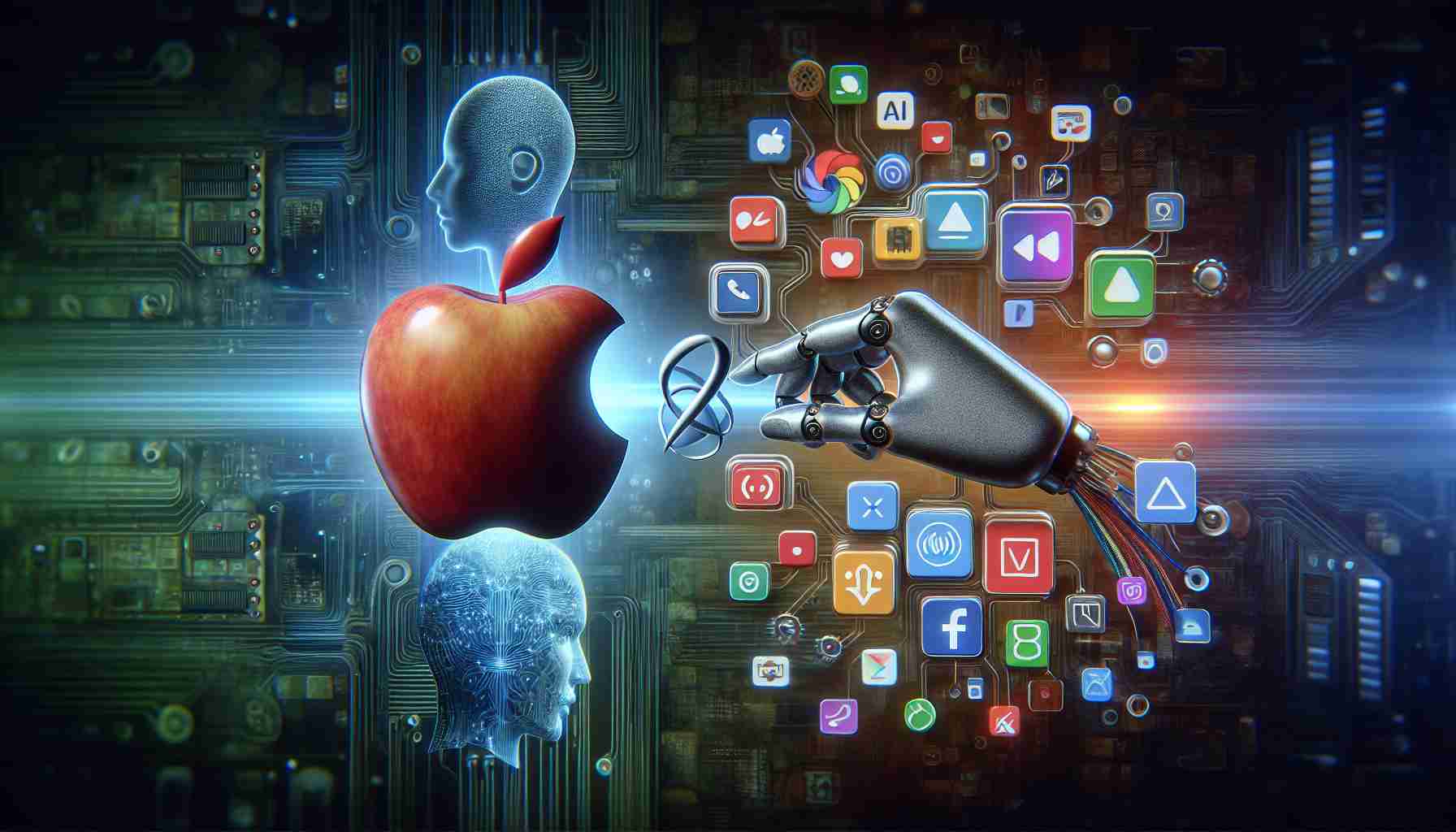Apple Engages OpenAI for AI Integration in Upcoming iOS 18
Continued negotiations have been reported between tech giant Apple and OpenAI, the parent company of ChatGPT, regarding the integration of OpenAI’s artificial intelligence features into Apple’s latest operating system, iOS 18. This potential agreement aims to enhance the iPhone’s capabilities by integrating an advanced level of AI responsiveness.
Choosing Between Giants: Previously, conversations were centered around licensing Gemini, a large language model from Google, for incorporation into new iPhone features. However, Apple has yet to make a final decision and is considering partnerships with both OpenAI and Google, or possibly selecting a different provider altogether.
Apple’s Strategic Move Into Generative AI: Competitors such as Microsoft and Google have already harnessed their proprietary AI applications, like Copilot and Gemini, and have woven AI into their suite of products. Apple, on the other hand, has been somewhat slower in deploying generative AI, which is capable of producing human-like responses to text queries.
In February, Apple CEO Tim Cook highlighted the company’s “significant” investment efforts in AI and teased future plans for AI deployment by year’s end. Cook acknowledged that AI technologies are already operating behind the scenes within various Apple products.
A Crucial Announcement Ahead: In the forthcoming Worldwide Developers Conference in June, Apple is expected to unveil a series of AI features seamlessly integrated into its devices, setting the stage for Apple’s services and software to potentially surpass the AI integration of its rivals.
Apple’s engagement with OpenAI to incorporate advanced AI capabilities into iOS 18 reflects a strategic push to remain competitive in the rapidly evolving landscape of artificial intelligence. This collaboration aims to bolster the iPhone’s ability to offer more sophisticated and responsive AI features to its users, demonstrating Apple’s commitment to innovation in this area.
Questions and Answers:
1. What is the expected impact of integrating OpenAI’s AI into iOS?
Advanced AI integration is likely to enhance user experience by providing more natural and context-aware interactions with devices, increasing productivity and possibly introducing new services or features.
2. Why would Apple choose OpenAI over Google’s Gemini?
The decision could be influenced by various factors such as the performance of the AI models, strategic partnerships, proprietary technology concerns, or even corporate culture alignment.
3. How does Apple’s investment in AI compare to its competitors?
While Apple has been less public about its AI efforts compared to Microsoft and Google, the company has integrated AI across various products and services, focusing on delivering seamless and privacy-centric experiences.
Challenges and Controversies:
One key challenge is finding the right balance between powerful AI capabilities and user privacy, a core value for Apple. Moreover, there might be concerns over the ‘black box’ nature of AI, where decisions are made by algorithms that are not fully transparent, which can lead to ethical considerations. Negotiating control and data access could also pose a challenge in the collaboration between Apple and OpenAI.
Advantages and Disadvantages:
Advantages:
– Enhanced user experiences with more intuitive AI interactions.
– Potential for new AI-driven services and features.
– Strengthening the iOS ecosystem in a competitive market.
Disadvantages:
– Privacy concerns from integrating third-party AI services.
– Dependence on OpenAI could reduce Apple’s control over core services.
– Potential increase in resource consumption (battery, processing power) due to more complex AI operations.
For those interested in the main companies’ initiatives and announcements, you can find more information at their official websites:
Keep in mind that this collaboration, if materialized, could mark a significant step in how AI is woven into the fabric of mobile operating systems, affecting millions of users worldwide.

